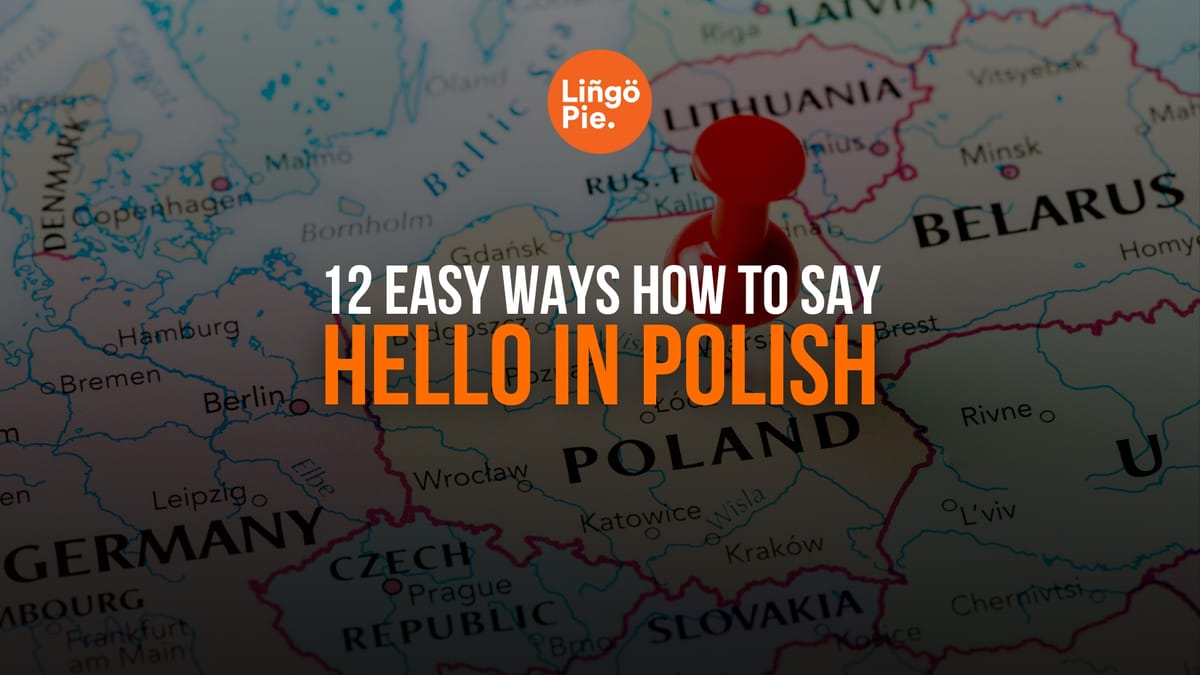You might already know how to say I love you in Chinese. But have you ever wondered how people express love in German, Swahili, or Korean? Across the globe, those three little words take many different forms, and each version carries its own rhythm, culture, and emotion.
In this guide, you’ll learn over 120 ways to say “I love you” in different languages, complete with pronunciation tips and notes on how native speakers actually use them. Whether you're learning for fun, writing to someone special, or simply curious about how love sounds worldwide, this list gives you a heartfelt head start.
- 8 Best Comedy Movies Like Superbad To Watch ASAP
- How To Say Grandmother In Different Languages
- 10 Best British TV Shows To Learn English

Why Learn How to Say “I Love You” in Other Languages?
Learning love phrases goes far beyond impressing someone on a date. Here are a few practical reasons to add multilingual romance to your toolkit:
- Stronger Cultural Connections
Telling a friend or partner I love you in their native language shows genuine interest in their culture. It’s a small gesture that builds trust and deepens relationships—whether personal or professional. - Richer Travel Experiences
On the road, speaking even one heartfelt sentence in the local language can turn a polite smile into real hospitality. It’s an easy way to move from tourist to welcomed guest. - Motivation for Language Study
Emotional words carry weight. Starting with something meaningful like a love phrase makes vocabulary stick in your memory and keeps learning fun. - Global Communication Skills
In our interconnected world, you might video-chat with a colleague in Brazil, celebrate a wedding with friends from Japan, and binge a K-drama—all in the same week. Knowing a few romantic phrases helps you engage with each culture respectfully. - Creative Expression
Each language has its own poetic rhythm. Exploring different ways to say “I love you” can inspire songwriting, poetry, or heartfelt letters that feel fresh and unique.
Feel free to bookmark this motivation list whenever you need a quick reminder of why you’re memorizing 120 new ways to say the same three little words.
Love In Different Languages
Love In Western European Languages
If you've watched any romantic movies, you've probably heard French being called "the language of love." But honestly, all Western European languages have their own special way of making "I love you" sound amazing. From Spanish to German, let's check out how people express their feelings across Western Europe.
- French: amour (noun), je t'aime (I love you)
- Spanish: amor (noun), te amo, te quiero (I love you)
- Italian: amore (noun), ti amo (I love you)
- Portuguese: amor (noun), eu te amo (I love you)
- German: Liebe (noun), ich liebe dich (I love you)
- Dutch: liefde (noun), ik hou van jou (I love you)
- Swedish: kärlek (noun), jag älskar dig (I love you)
- Norwegian: kjærlighet (noun), jeg elsker deg (I love you)
- Danish: kærlighed (noun), jeg elsker dig (I love you)
- Finnish: rakkaus (noun), minä rakastan sinua (I love you)
- Icelandic: ást (noun), ég elska þig (I love you)
- Irish: grá (noun), tá grá agam duit (I love you)
- Scottish Gaelic: gaol (noun), tha gaol agam ort (I love you)
- Welsh: cariad (noun), rwy'n dy garu di (I love you)
- Catalan: amor (noun), t'estimo (I love you)
- Galician: amor (noun), quérote (I love you)
- Basque: maitasuna (noun), maite zaitut (I love you)
- Luxembourgish: Léift (noun), ech hunn dech gär (I love you)
- Frisian: leafde (noun), ik hâld fan dy (I love you)
- Romansh: amur (noun), jau ta tem (I love you)
- Faroese: kærleiki (noun), eg elski teg (I love you)
- Breton: karantez (noun), me da gar (I love you)
- Corsican: amore (noun), ti tengu caru (I love you)
- Sardinian: amori (noun), ti amo (I love you)
- Occitan: amor (noun), t'aimi (I love you)


Love In Eastern European Languages
Don't let those serious-looking Cyrillic letters fool you - Eastern European languages pack some of the most heartfelt and poetic ways to express love you'll ever hear. While they might look tricky to pronounce at first, these languages offer some uniquely beautiful expressions of affection that can make anyone's heart melt.
- Russian: любовь (lyubov), я тебя люблю (ya tebya lyublyu)
- Polish: miłość (miwosc), kocham cię (koham che)
- Ukrainian: любов (lyubov), я тебе кохаю (ya tebe kokhayu)
- Czech: láska, miluji tě (miluyi tye)
- Slovak: láska, ľúbim ťa (lyubim tya)
- Bulgarian: любов (lyubov), обичам те (obicham te)
- Croatian: ljubav, volim te
- Serbian: љубав/ljubav, волим те/volim te
- Slovenian: ljubezen, ljubim te
- Romanian: dragoste/iubire, te iubesc
- Hungarian: szerelem, szeretlek
- Albanian: dashuri, të dua
- Lithuanian: meilė, aš tave myliu
- Latvian: mīlestība, es tevi mīlu
- Estonian: armastus, ma armastan sind
- Macedonian: љубов (ljubov), те сакам (te sakam)
- Belarusian: каханне (kahanne), я цябе кахаю (ja ciabie kahaju)
- Bosnian: ljubav, volim te
- Montenegrin: ljubav, volim te
- Armenian: սեր (ser), ես սիրում եմ քեզ (yes sirum em kez)
- Georgian: სიყვარული (siq'varuli), მე შენ მიყვარხარ (me shen mik'varkhar)
- Moldovan: dragoste, te iubesc
- Greek: αγάπη (agapi), σ'αγαπώ (s'agapo)
- Turkish: aşk/sevgi, seni seviyorum
- Azerbaijani: sevgi, səni sevirəm (seni sevirem)

Love In Asian Languages
From the respectful tones of Japanese to the melodic flow of Mandarin, Asian languages offer some of the most diverse and nuanced ways to express love. What's particularly fascinating is how many of these languages have different words for different types of love - family love, romantic love, and even love for friends often have their own special terms.
- Mandarin Chinese: 爱 (ài), 我爱你 (wǒ ài nǐ)
- Japanese: 愛 (ai), 愛してる (aishiteru)
- Korean: 사랑 (sarang), 사랑해요 (saranghaeyo)
- Vietnamese: tình yêu, anh yêu em/em yêu anh
- Thai: ความรัก (kwaam rak), ผมรักคุณ/ฉันรักคุณ (phom rak khun/chan rak khun)
- Hindi: प्यार (pyaar), मैं तुमसे प्यार करता/करती हूं (main tumse pyaar karta/karti hoon)
- Bengali: ভালোবাসা (bhalobasha), আমি তোমাকে ভালোবাসি (ami tomake bhalobashi)
- Urdu: محبت (muhabbat), میں تم سے پیار کرتا/کرتی ہوں (main tumse pyaar karta/karti hoon)
- Indonesian: cinta, aku cinta kamu
- Malay: cinta, saya cinta awak
- Tagalog: pag-ibig, mahal kita
- Nepali: माया (maya), म तिमीलाई माया गर्छु (ma timilai maya garchu)
- Khmer: ស្នេហា (sneha), ខ្ញុំស្រលាញ់អ្នក (khnhom srolanh nak)
- Lao: ຮັກ (hak), ຂ້ອຍຮັກເຈົ້າ (khoy hak chao)
- Burmese: အချစ် (a-chit), ခင်ဗျားကိုချစ်တယ် (chin ba ya ko chit tal)
- Mongolian: хайр (khair), би чамд хайртай (bi chamd khairtai)
- Kazakh: махаббат (mahabbat), мен сені сүйемін (men seni süyemin)
- Tamil: காதல் (kadhal), நான் உன்னை காதலிக்கிறேன் (naan unnai kathalikirean)
- Telugu: ప్రేమ (prema), నేను నిన్ను ప్రేమిస్తున్నాను (nenu ninnu premistunnanu)
- Malayalam: സ്നേഹം (sneham), ഞാൻ നിന്നെ സ്നേഹിക്കുന്നു (njaan ninne snehikkunnu)
- Kannada: ಪ್ರೀತಿ (prīti), ನಾನು ನಿನ್ನನ್ನು ಪ್ರೀತಿಸುತ್ತೇನೆ (nānu ninnannu prītisuttēne)
- Sinhala: ආදරය (ādaraya), මම ඔයාට ආදරෙයි (mama oyāṭa ādareyi)
- Uzbek: sevgi, men seni sevaman
- Punjabi: ਪਿਆਰ (pyaar), ਮੈਂ ਤੈਨੂੰ ਪਿਆਰ ਕਰਦਾ/ਕਰਦੀ ਹਾਂ (main tainu pyaar karda/kardi haan)
- Filipino: pag-ibig, mahal kita


Love In Middle Eastern & North African Languages
The Middle East and North Africa have given us some of the world's most poetic expressions of love - just think of those beautiful Arabic love poems! These languages carry centuries of rich cultural tradition in their love expressions, often interweaving respect and devotion in ways that Western languages don't quite capture.
- Arabic (Standard): حب (hubb), أحبك (uhibbuka/uhibbuki)
- Persian/Farsi: عشق (eshgh), دوستت دارم (dooset daram)
- Hebrew: אהבה (ahava), אני אוהב/ת אותך (ani ohev/ohevet otcha/otach)
- Kurdish: evîn/عەشق, ez te hez dikim
- Iraqi Arabic: حب (hub), أحبج/أحبك (ahebbich/ahebbak)
- Egyptian Arabic: حب (hob), بحبك (bahebbak/bahebbik)
- Moroccan Arabic: حب (hob), كنبغيك (kanbghik)
- Tunisian Arabic: حب (hob), نحبك (nhebek)
- Algerian Arabic: حب (hob), نحبك (nebghik)
- Libyan Arabic: حب (hob), نحبك (nhebek)
- Maltese: imħabba, inħobbok
- Assyrian: ܚܘܒܐ (khuba), ܒܥܝܢܘܟ (b'ayinokh)
- Aramaic: ܚܘܒܐ (khubo), ܐܢܐ ܪܚܡ ܠܟ (ena rakhem lakh)
- Coptic: ⲁⲅⲁⲡⲏ (agape), ϯⲙⲉⲓ ⲙⲙⲟⲕ/ⲙⲙⲟ (timei mmok/mmo)
- Berber/Tamazight: tayri, ḥemleɣ-kem/k
- Somali: jacayl, waan ku jeclahay
- Tigrinya: ፍቕሪ (fiqri), እፈትወካ/ኪ (efetweka/ki)
- Amharic: ፍቅር (fiker), እወድሻለሁ/እወድሃለሁ (ewedishalehu/ewedihalehu)
- Syriac: ܚܘܒܐ (hubo), ܐܢܐ ܪܚܡ ܠܟ (ana rahem lakh)
- Sudanese Arabic: حب (hub), بحبك (bahebak/bahebik)
- Lebanese Arabic: حب (hob), بحبك (bhebbak/bhebbik)
- Azerbaijani: sevgi, səni sevirəm
- Pashto: مينه (meena), زه تا سره مينه لرم (za ta sara meena laram)
- Turkish: aşk, seni seviyorum
- Modern South Arabian: حب (hub), حبّيتك (habbaytak)

Love In African Languages
Did you know Africa has over 2,000 languages? That's a lot of ways to say "I love you!" While we can't cover all of them (that would take forever), I'll share some of the most widely used expressions of love from across the continent.
- Swahili: upendo/mapenzi, nakupenda
- Yoruba: ife, mo nife re
- Igbo: ihunanya, ahụrụ m gị n'anya
- Hausa: soyayya, ina sonki/sonka
- Zulu: uthando, ngiyakuthanda
- Xhosa: uthando, ndiyakuthanda
- Amharic: ፍቅር (fiker), እወድሃለሁ (ewedihalehu)
- Afrikaans: liefde, ek het jou lief
- Oromo: jaalala, sin jaalladha
- Sesotho: lerato, kea o rata
- Tswana: lorato, ke a go rata
- Shona: rudo, ndinokuda
- Lingala: bolingo, nalingi yo
- Kikuyu: wendani, nĩngwendete
- Wolof: mbëggeel, dama la bëgg
- Bambara: kanu, n'bi i kanu
- Kinyarwanda: urukundo, ndagukunda
- Kirundi: urukundo, ndagukunda
- Luganda: okwagala, nkwagala
- Twi: ɔdɔ, me dɔ wo
- Ndebele: uthando, ngiyakuthanda
- Tumbuka: chitemwa, nkhukutemwa
- Fulani: yiɗde, mi yiɗi ma
- Malagasy: fitiavana, tiako ianao
- Chichewa: chikondi, ndimakukonda
Fun Facts About Love Around the World
- Japan: Two-Day Valentine Tradition
Women give chocolate to men on February 14, and men return gifts exactly one month later on White Day (March 14). - Finland: Friendship First
Valentine’s Day is called Ystävänpäivä—“Friend’s Day.” People focus more on celebrating pals than romantic partners. - Denmark: Secret “Snowdrop” Letters
Danes send pressed white flowers (snowdrops) with anonymous poems. If the recipient guesses the sender, they earn an Easter egg later in the spring. - South Korea: Monthly Love Holidays
Couples have themed “love days” on the 14th of every month—Rose Day, Kiss Day, Wine Day, even Movie Day. - France: The Town of Love Letters
In Saint-Valentin, France, thousands of couples flock each year to sign a public “Register of Love” and attach heart-shaped notes to a special “Tree of Vows.” - Argentina: A Full Week of Kisses
Argentinians celebrate “Sweetness Week” in July, trading kisses for candies and ending the week with “Friend’s Day.”
These tidbits show how diverse (and inventive) love traditions can be—proof that romance speaks every language, just in its own accent.
Why “I Love You” Sounds Different in Every Language
The phrase “I love you” sounds different in every language because of the unique ways each culture conceptualizes love and the structure of its language. Linguistically, the sentence reflects how languages handle pronouns, verbs, and emotional expression.
For instance, in English and German, subject-verb-object order leads to I love you and Ich liebe dich. But in Korean or Japanese, the verb often comes at the end, producing forms like saranghaeyo or aishiteru, which literally mean “love-do” or “I-do-love” depending on the context.
Culturally, the meaning and intensity of the phrase varies. Some languages, like French or Spanish, use romantic vocabulary more freely, while others, such as Chinese or Finnish, may rely more on tone, gestures, or indirect communication to express deep emotion. This influences how the phrase is spoken and understood — in some cultures, it is warm and casual, while in others it is formal or even rare.
Movies That Celebrate Love
Want to level up your language skills while getting lost in some of the world's most beautiful love stories? There's nothing quite like watching romance bloom in its original language - you'll pick up authentic expressions of love that textbooks just can't teach you.
- "Amelie" (French) - This charming Parisian classic made everyone want to learn French! Following the lovable Amélie as she plays cupid and finds her own romance
- "Like Water for Chocolate" (Spanish) - A passionate Mexican film that blends food, family, and forbidden love - it's become a Spanish-language must-watch
- "Life is Beautiful" (Italian) - Roberto Benigni's masterpiece shows the power of love during history's darkest times
- "Crouching Tiger, Hidden Dragon" (Mandarin) - This worldwide hit combines epic martial arts with a deeply moving love story
- "The Girl Who Leapt Through Time" (Japanese) - An anime favorite that perfectly captures young love and second chances
Ready to watch these classics and thousands more in their original languages? Check out Lingopie! Our streaming platform makes language learning fun with interactive subtitles and learning tools.

Whether you're studying for romance or just love great cinema, we've got everything you need to start your language journey. Begin your free trial today and fall in love with learning!
FAQ: Saying “I Love You” in Other Languages
What is the most romantic language to say “I love you”?
French is often called the “language of love” due to its melodic pronunciation and cultural association with romance. Je t’aime (I love you) is one of the most famous romantic phrases worldwide.
How do you say “I love you” in Chinese?
In Mandarin Chinese, “I love you” is 我爱你 (wǒ ài nǐ). It’s used in serious relationships and often reserved for meaningful moments.
How do you pronounce “I love you” in Japanese?
In Japanese, “I love you” is 愛してる (aishiteru) or 愛してます (aishitemasu). It’s pronounced ai-shee-teh-roo. However, Japanese people often express love more through actions than direct words.
Is it common to say ‘I love you’ in all cultures?
Not always. In some cultures, like China, Japan, or Korea, love is shown more through actions, gifts, or shared experiences rather than frequent verbal expression.


![How To Say Love In Different Languages [120+ Ways]](/blog/content/images/size/w1200/2024/11/How-To-Say-Love-In-Different-Languages--120--Ways-.jpg)


![5 Official Spanish Language Tests To Show Your Proficiency Level [Guide]](/blog/content/images/2025/06/Spanish-Language-Tests.jpg)


![How To Learn English With Sitcoms: 5 Easy Ways [Guide]](/blog/content/images/size/w300/2023/09/94E050B7-BD8B-4659-B6E5-B5996E461FC8.png)

